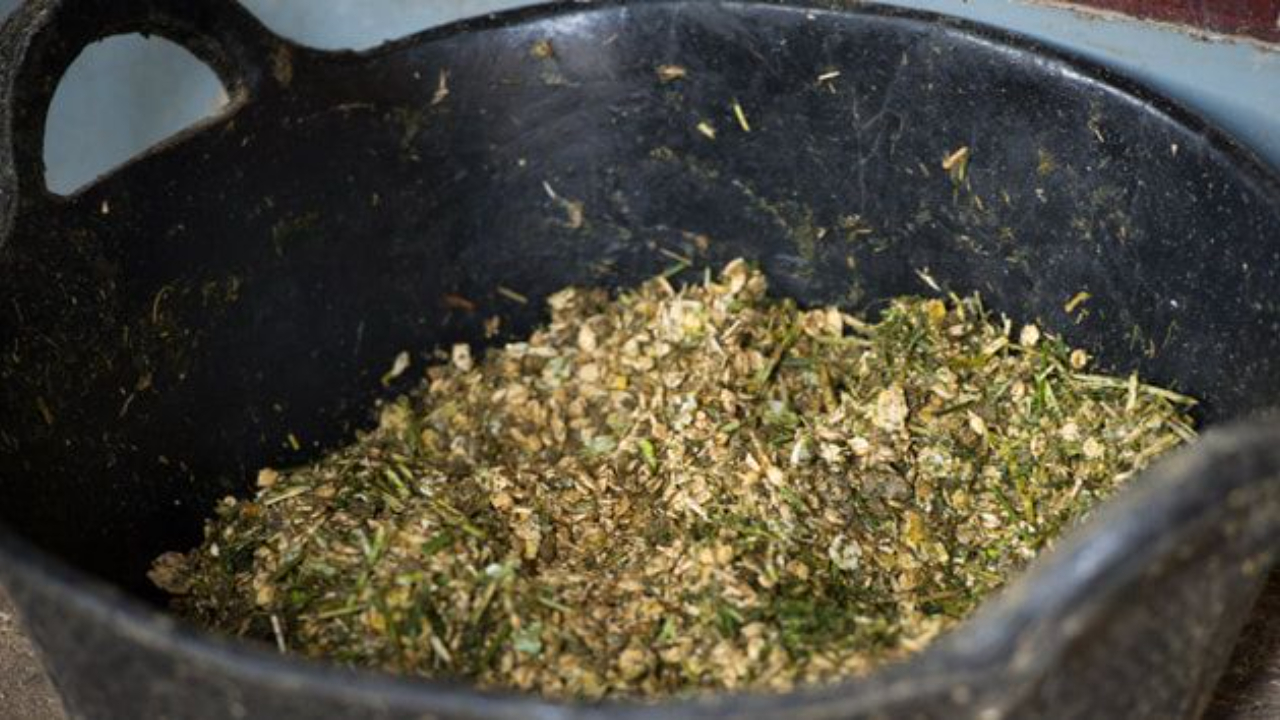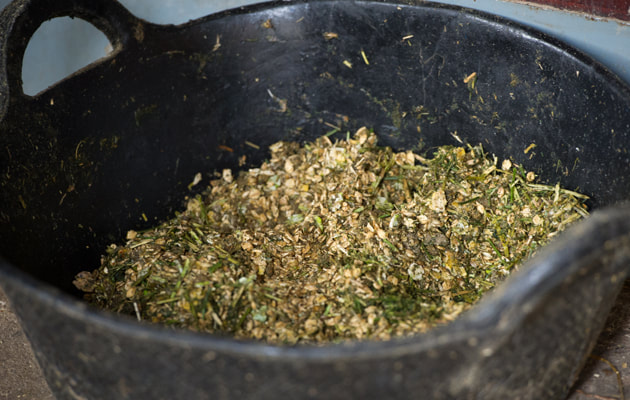Keeping Your Horse's Diet Balanced (part 2 of a 3 part series)
Nov 17, 2019

Let me start by prefacing this post with a disclaimer. I am not a nutrition expert, a vet or an employee of a feed company. I don't personally know your horse and its circumstances, so please take this information as just my opinion and don't make any drastic changes to your horse's feed regimen without consulting your veterinarian. What I can offer you is my years of experience and anecdotal evidence around various feeding concepts and how I have seen them impact horses, specifically in the areas of hoof health and function.
I believe in feeding horses naturally. That means lots of forage that is balanced in minerals and energy requirements. If you have the right hay/pasture combination then no supplements should be necessary for a healthy horse. This notion that is common among horse owners that all horses should have some type of grain (ie processed feed) in their diet needs to be better interpreted. If you have a compromised horse with health issues or hoof problems then you may need to add supplements to your forage to help. If you have a horse with extreme energy requirements such as a fast metabolism or a performance horse with a great energy output you may need to add more calories. Its how we add these things that becomes important. My preference would be to add more of the balanced forage as opposed to grain. It equates in humans to someone with a fast metabolism that may have trouble keeping weight on. The healthy option to maintain their weight wouldn't be to eat more fast food. It would be to add more of the healthy food they are eating to try and maintain their body condition and energy requirements. Its the same for our horses.
The most 3 most common issues I see regarding diet in my trimming practice are:
#1 - too many processed carbohydrates
#2 - mineral deficiency
#3 - protein deficiency
Processed commercial feeds are generally higher in carbohydrates and fillers then people realize. They are "fortified" with added vitamins and minerals, but most horse owners don't even know what those vitamins and minerals are or what they are added to the feed for. Most of those vitamins and minerals are already present in adequate quantities in your horses's pasture and forage and they aren't actually required to be supplemented. Often they are such negligent amounts that it doesn't harm your horse to consume them, but the added carbohydrates in the processed feed may be harming your horse. I have seen a lot of hoof, hair coat, digestive and behavior problems rectified by reducing the carbohydrate intake of the horse. Not reducing the overall fiber and forage intake, but removing processed feeds. Often horse owners feed a "complete feed" in the hopes that it is supplementing everything they think maybe lacking in their forage. While in theory this works, often the amount of that processed feed you would have to feed in order to have your horse receive all of those vitamins, minerals and nutrients far exceeded the amount of processed carbohydrates they should be eating. There are also times that these additives may throw off the balance of absorption of certain things and we have to be cautious not to upset this balance.
There is a time and a place to add supplementation. If your forage is lacking minerals due to overgrazing or mineral depletion of the soil then you may need to add them. You will not be able to tell this by just looking, you will need to run tests on your hay to make sure you are supplementing things that need to be supplemented and are not over supplementing your horse which can lead to mineral toxicity. Testing is easy if you buy your hay from the same source every year, but can be more complicated if you don't. Hay testing is relatively inexpensive ranging from $20 to $100 depending on the panels you want to run. But I assure you they are worth it in the long run. Supplementing minerals that aren't needed could cost your $50+ each month, and large vet bills down the road if you end up with a toxicity. A fastidious hay farmer will fertilize their soil when needed and therefore balance the mineral content of their hay so that you may not have to supplement minerals. It can be worthwhile to speak to hay suppliers about their fertilization practices and the mineral content of their hay before purchasing.
Protein deficiency is something that not a lot of horse owners understand adequately. Proteins are in every part of your horse and each protein is made of smaller parts that when linked together make up an individual protein with a specific function. Proteins are broken down in the digestive system into smaller parts that form amino acids. Horses require 20 different amino acids to come together in various combinations in order to make up the protein chains that build cells. Most horses are confined to the same overgrazed pasture and same hay source that may not provide all of these amino acids. Some amino acids can be produced from other amino acids, but there are a few that cannot be. These are called limiting amino acids and without them the horse can't form the protein chains needed to adequately build specific cells. So what happens is the horse reabsorbs these proteins from other already produced cells in the body. Because the priority is organ function and cell creation the areas that suffer first and have to recycle their amino acids more frequently are the hair coat, top line muscles, connective tissues and hoof cells. This creates a protein deficiency that has a systemic effect on the horse and can take years to correct.
Supplementing protein can be difficult because of those 20 amino acids. You have to be sure to supplement protein sources that contain the three limiting amino acids or the re-absorption of those amino acids from other areas will continue. High quality protein sources available are alfalfa pellets/cubes which are approximate 17% protein as well as soybean meal which is on average 40% protein. To add context the average protein content of grass hay is anywhere from 8-14%.
This information is just the tip of the iceberg when it comes to equine nutrition and you must understand the complete picture before making changes to your horse's feed regimen. Talk to your vet or equine nutritionist and formulate a plan specific to their needs, energy requirements and specifically balanced to your hay or pasture. Equine diet and nutrition has a whole horse effect and if our focus is healthy hooves we have to take the diet into account. The diet builds the cells that make up the hoof and it also has to be balanced within the horse.
